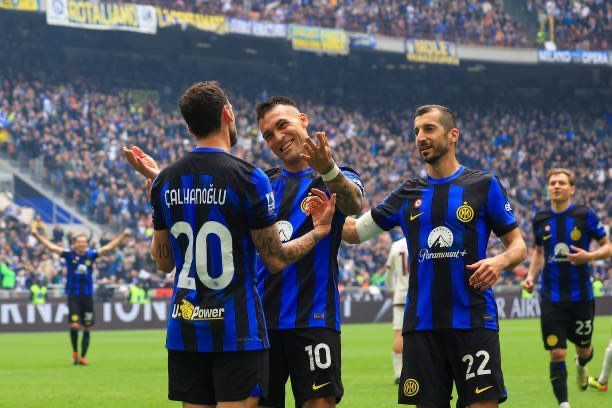As the curtain prepares to rise on the 2025-26 football season, the air around Inter Milan is thick with a mixture of apprehension and audacious hope. The ghosts of the previous campaign, marked by a devastating collapse on the final Serie A matchday, a humbling 5-0 defeat in the UEFA Champions League final against PSG, and an unceremonious exit from the Club World Cup at the hands of Fluminense, linger heavily. These failures precipitated a seismic shift at the top, ushering in an era defined by a controversial managerial gamble and a transfer strategy that has left many pundits scratching their heads.
The Unraveling of a Promising Era
For four years, Simone Inzaghi steered the Nerazzurri ship, culminating in a Scudetto triumph and two Champions League final appearances. By most metrics, a commendable tenure. Yet, the brutal nature of the 2024-25 season’s denouement proved too much for the club’s hierarchy. Inzaghi, now finding new pastures with Al-Hilal, left behind a legacy that was both celebrated and ultimately deemed insufficient. His departure paved the way for a decision that has become the focal point of all pre-season discussions: the appointment of Cristian Chivu.
Chivu`s Baptism by Fire: A Risky Bet on Familiarity
Cristian Chivu, a name synonymous with Inter`s glorious 2010 Champions League triumph, has stepped into the managerial hot seat. His resume, however, presents a stark contrast to the grandeur of his playing career. Prior to this colossal leap, Chivu`s coaching experience was largely confined to Inter`s youth teams, punctuated by a brief, 13-game stint in Serie A with Parma. This unusual choice, reportedly made after the primary target, Como`s Cesc Fabregas, proved unattainable, signals a club valuing internal familiarity over proven top-flight experience. It’s a decision that whispers of a deep understanding of the club`s fabric, but shouts concerns about the tactical acumen required to navigate the perilous waters of elite European football. One might even suggest it`s a nostalgic appointment, hoping former glory might somehow transfer to the dugout, like a lucky charm.
The appointment of Cristian Chivu feels like a nostalgic leap of faith, rather than a calculated strategic move. Inter are betting heavily on a familiar face, hoping past glory translates into future managerial success.
The Un-Revolution: A Squad in Stasis?
The managerial change, while significant, is merely one facet of the profound questions swirling around Inter`s readiness for the new season. Many anticipated a significant squad overhaul, particularly concerning the defensive bedrock. The likes of Stefan de Vrij, at 33, and Francesco Acerbi, soon to be 38, form the core of the central defense. While their experience is undeniable, their ability to maintain elite performance levels through another grueling campaign remains a major concern for the technical staff and fanbase alike. Yet, with the summer transfer window nearing its close, the anticipated defensive reinforcements have materialized into… precisely nothing. The focus has seemingly shifted towards acquiring an attacking player and a midfielder, leaving the aging defensive unit alarmingly exposed.
Youth Investment: A Missed Opportunity?
This conservative approach to defensive recruitment is starkly highlighted by the club’s reluctance to pursue promising young Italian talent. The recent transfer of 18-year-old Giovanni Leoni to Liverpool for a reported $30 million, a move Inter did not even attempt to rival, ignited a debate across Italian football. Are Italian clubs, and Inter in particular, truly committed to nurturing domestic youth, or do they perpetually default to the «safer» option of experienced, albeit declining, players? The narrative suggests a perplexing dichotomy: advocating for youth development on one hand, while actively bypassing opportunities to integrate it at the highest level on the other.
Compounding these concerns is the failure to secure Ademola Lookman from Atalanta, a key offensive target, leaving a noticeable gap in attacking options. The fanbase, therefore, enters the season with an understandable degree of skepticism regarding the squad`s overall strength and depth.
Francesco Pio Esposito: A Lone Beacon of Hope?
Amidst the widespread doubts, a glimmer of excitement radiates from the promising young striker, Francesco Pio Esposito. Having already showcased his potential with a decisive goal against River Plate in the Club World Cup, Esposito represents the kind of youthful exuberance many believe Inter desperately needs. Crucially, Chivu, having worked with Esposito during his time in the Inter academy, has reportedly championed his retention over numerous offers, signalling an intent to integrate him into a key role. This commitment to one young talent, however, inadvertently underscores the broader stagnation in the club’s transfer policy for youth. Is Esposito a genuine cornerstone for the future, or simply a convenient narrative amidst a wider lack of strategic youth investment?
The Road Ahead: High Stakes and Unanswered Questions
As the new season approaches, Cristian Chivu faces an immense challenge. He inherits a team reeling from recent disappointments, with an aging core in critical defensive positions and a transfer window that appears to have raised more questions than answers. The task is not merely to win matches, but to reignite belief, redefine the club`s tactical identity, and, perhaps most importantly, justify the audacious faith placed in his unproven managerial prowess. Inter Milan`s 2025-26 campaign will be a true test of character, strategic vision, and whether a bold gamble can indeed pay off against the odds.

